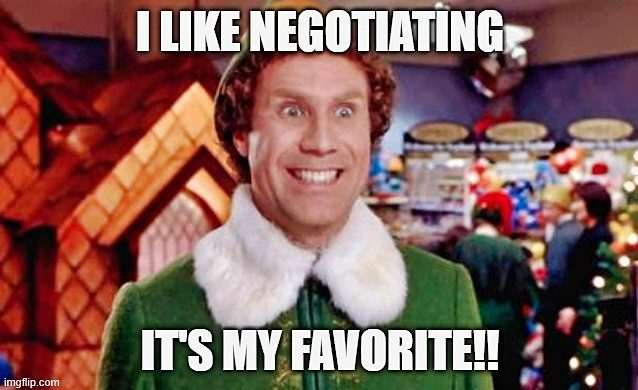
Ah, the world of land sales—a realm where fortunes can be made, dreams can flourish, and negotiations can get as tangled as your last attempt at holiday lights. Whether you’re a fresh-faced novice feeling like a deer in the headlights or a grizzled property veteran who knows the terrain better than their own backyard, mastering the art of land sale negotiations is key to not just surviving but thriving.
Selling land isn’t like offloading your old bike on the internet; it requires finesse, strategic maneuvering, and a dash of charm. This guide isn’t just a bunch of tips; it’s your secret playbook for closing land deals with the efficiency and flair of a seasoned pro. Let’s roll out the red carpet and strut through the steps you’ll need to clinch that deal, ensuring you walk away with a swagger in your step and a contract in your hand.
I. Understanding the Basics of Land Sale Negotiations
The Role of Negotiation in Land Sales: Think of negotiation as the Swiss Army knife in your land sale toolkit. It’s essential for carving out a deal that leaves both buyer and seller nodding in agreement, ideally over a cup of coffee with smiles all around. Effective negotiation can transform a simple transaction into a win-win scenario, making everyone feel like they’ve hit the jackpot. Whether your land is located in Kentucky or Tennessee, we’re here to negotiate with you about selling your land.
The Importance of Preparation: Just as you wouldn’t hike a mountain without a map, don’t enter negotiations without your homework. Knowing your land’s worth, understanding the market temperature, and having a realistic asking price are like having a good pair of boots—they give you the confidence to stand your ground. Being well-prepared arms you with the knowledge to hold firm during land sale negotiations or adjust your course when necessary.
Identifying Your Goals and Priorities: Before you dive into the nitty-gritty of land sale negotiations, take a moment to outline what you really want. Is your priority the ching of the cash register, the speed of the sale, or the conditions tied to the deal? Pinning down your goals is like setting your GPS before a road trip—it keeps you headed in the right direction.
II. Strategies for Effective Land Sale Negotiations
Setting the Stage/Establishing a Positive Atmosphere: Creating a friendly atmosphere is akin to laying out a welcome mat at your negotiations. A handshake and a smile can go a long way in setting a cooperative tone. Remember, the aim is to make both parties feel at ease—because when people are relaxed, they’re more likely to play ball.
The Power of Listening: In the orchestra of negotiation, listening is as crucial as playing your own instrument. By tuning into the buyer’s needs and concerns, you not only show respect but also gain valuable insights. This doesn’t just build trust; it allows you to tailor your pitch and address the buyer’s unique concerns, enhancing the harmony of the deal.
Be Flexible and Willing to Compromise: Flexibility in land sale negotiations is about knowing when to bend without breaking. While it’s important to know your priorities, being too rigid can turn a bridge into a barricade. A little give-and-take not only keeps the dialogue moving but can also lead to creative solutions that satisfy everyone’s checklist.
Utilizing the Power of Leverage: Leverage in negotiations is like having the high ground in a battle. It enhances your position. This could be anything from a seller’s market, the unique charm of your property, the absence of similar listings, or the buyer’s timeline urgency. Recognizing and utilizing these leverage points strategically can significantly strengthen your negotiation stance. Common leverage points in land sale negotiations include:
- A strong local market that favors sellers
- A unique or desirable property
- A lack of competing properties in the area
- The buyer’s urgency or need to close the deal quickly
Timing and Pacing: The rhythm of negotiation can often dictate its success. Rushing might lead to missteps, while dragging your heels could cool off interest. It’s like finding the right moment to pass the baton in a relay race—timing is everything. Stay sensitive to the pace and flow of the conversation, and know when to advance or hold back.
III. Common Challenges and How to Overcome Them
Dealing with Lowball Offers: When a lowball offer lands in your inbox, it’s tempting to respond with a laughable GIF rather than a counteroffer. However, keep your cool. Politely but firmly bolster your response with data and rationale that support your asking price. If the buyer is genuinely interested and not just throwing darts in the dark, they might step up their game after seeing your well-founded arguments.
Managing Multiple Offers: Ah, the enviable problem of juggling multiple offers! It’s like being the most popular kid at the dance. Take your time to evaluate each proposal thoughtfully. Don’t just be dazzled by the dollar signs—consider the solidity of each offer, the readiness of the buyers, and the smoothness of their terms. Sometimes, the sweetest deal isn’t the one with the most zeros.
Navigating Contingencies: Land sale negotiations often come with a side of contingencies—those “ifs” and “buts” that buyers tack on. Whether it’s financing, inspections, or zoning approvals, scrutinize each condition to decide if they’re deal enhancers or deal breakers. Don’t shy away from negotiating to tweak or toss out overly risky contingencies.
Addressing the Buyer’s Concerns: Buyers are like inquisitive squirrels, always on the lookout for potential issues. Be ready to address their concerns head-on. Provide documents, facts, and even expert opinions that can help smooth their ruffled feathers. An informed buyer is a confident buyer, and confident buyers sign deals.
Handling Difficult Negotiations: Every now and then, land sale negotiations feel like you’re in a wild west standoff. When discussions get tough, maintain your composure and stick to your negotiation guns, but be fair. If things get too heated, suggest a timeout or bring in a neutral sheriff—like a mediator or real estate attorney—to restore peace and progress. Whether your land is located in Virginia or West Virginia, we’re here to negotiate with you about selling your land and we promise not to be difficult.
IV. Closing the Deal: Tips for a Successful Outcome
Put Everything in Writing: The pen is mightier than the sword, especially in land sale negotiations. Document every agreement meticulously to prevent the “But you said…” drama. A well-drafted purchase agreement should lay out the price, terms, and any contingencies in black and white, ensuring everyone is on the same page.
Enlist the Help of Professionals: Sometimes, you need a village to close a deal. Don’t hesitate to call in the cavalry—real estate agents, attorneys, or negotiation consultants. These pros can offer invaluable insights and back you up with expert advice, increasing your odds of a favorable outcome.
Be Prepared for the Closing Process: Crossing the finish line of land sale negotiations requires one last sprint—closing. Prep all your documents, tick off any remaining contingencies, and make sure the title transfer is ready to roll. Staying proactive during closing is like cleaning up after a party; it’s the least fun part, but doing it right means everyone goes home happy.
Our Conclusion on Land Sale Negotiations
Stepping into the arena of land sale negotiations can feel daunting, but with the right mix of preparation, strategy, and a bit of humor, you can navigate this complex process with flair. By understanding the dance of negotiations, embracing flexibility, and preparing meticulously for the closing, you can ensure a smooth transaction that leaves both parties smiling—and that’s a real estate win in anyone’s book!
